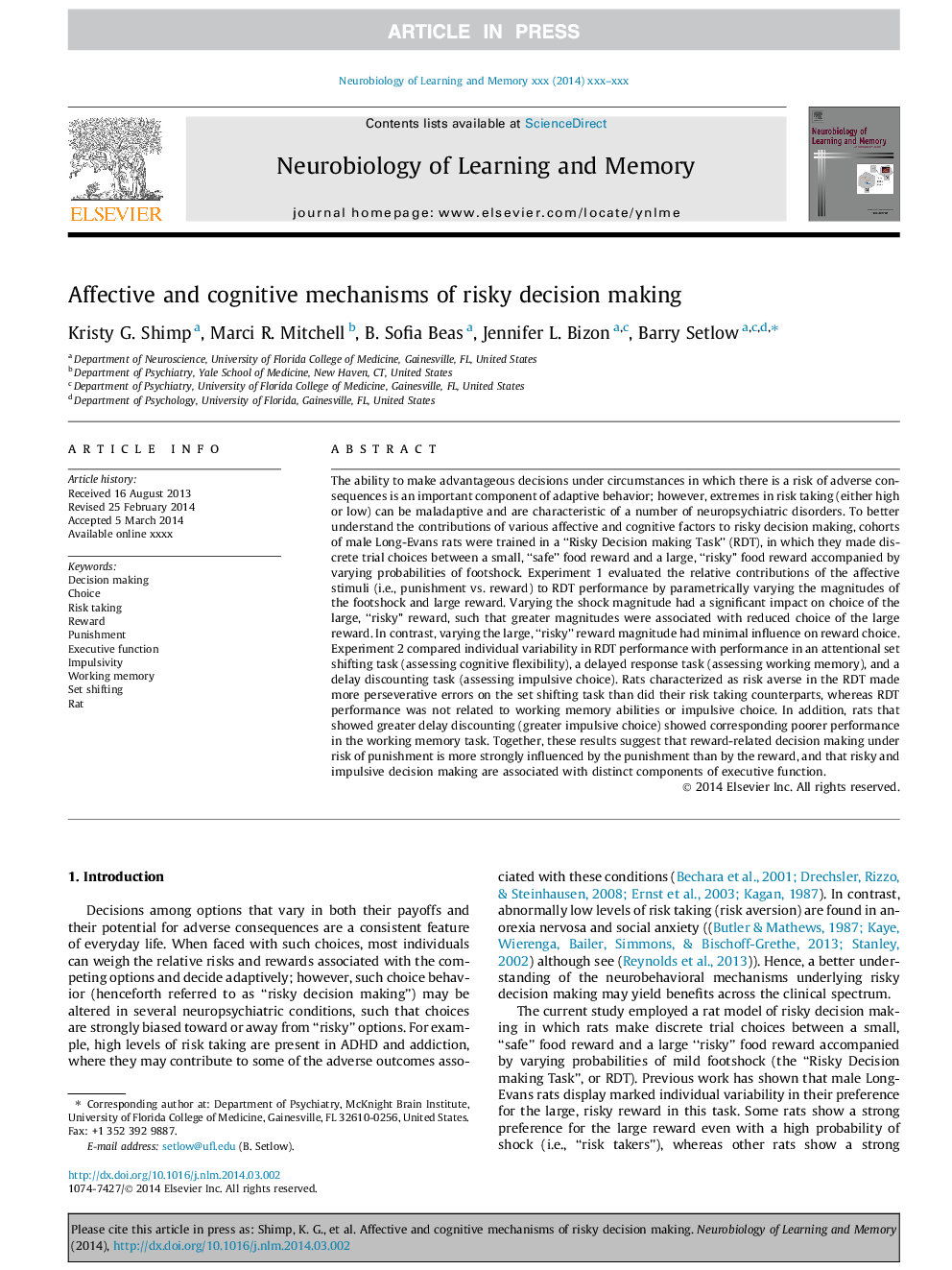| Article ID | Journal | Published Year | Pages | File Type |
|---|---|---|---|---|
| 7299800 | Neurobiology of Learning and Memory | 2015 | 11 Pages |
Abstract
The ability to make advantageous decisions under circumstances in which there is a risk of adverse consequences is an important component of adaptive behavior; however, extremes in risk taking (either high or low) can be maladaptive and are characteristic of a number of neuropsychiatric disorders. To better understand the contributions of various affective and cognitive factors to risky decision making, cohorts of male Long-Evans rats were trained in a “Risky Decision making Task” (RDT), in which they made discrete trial choices between a small, “safe” food reward and a large, “risky” food reward accompanied by varying probabilities of footshock. Experiment 1 evaluated the relative contributions of the affective stimuli (i.e., punishment vs. reward) to RDT performance by parametrically varying the magnitudes of the footshock and large reward. Varying the shock magnitude had a significant impact on choice of the large, “risky” reward, such that greater magnitudes were associated with reduced choice of the large reward. In contrast, varying the large, “risky” reward magnitude had minimal influence on reward choice. Experiment 2 compared individual variability in RDT performance with performance in an attentional set shifting task (assessing cognitive flexibility), a delayed response task (assessing working memory), and a delay discounting task (assessing impulsive choice). Rats characterized as risk averse in the RDT made more perseverative errors on the set shifting task than did their risk taking counterparts, whereas RDT performance was not related to working memory abilities or impulsive choice. In addition, rats that showed greater delay discounting (greater impulsive choice) showed corresponding poorer performance in the working memory task. Together, these results suggest that reward-related decision making under risk of punishment is more strongly influenced by the punishment than by the reward, and that risky and impulsive decision making are associated with distinct components of executive function.
Keywords
Related Topics
Life Sciences
Neuroscience
Behavioral Neuroscience
Authors
Kristy G. Shimp, Marci R. Mitchell, B. Sofia Beas, Jennifer L. Bizon, Barry Setlow,
